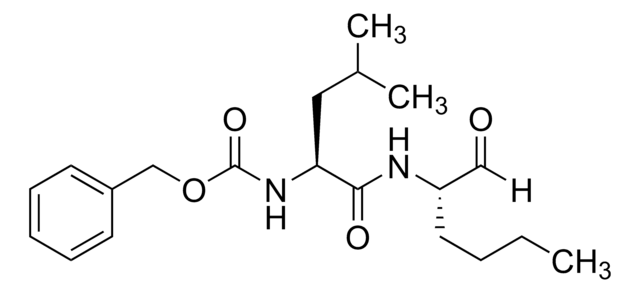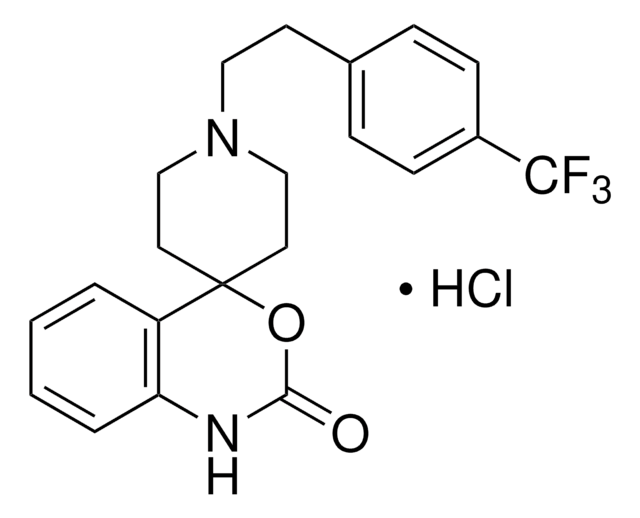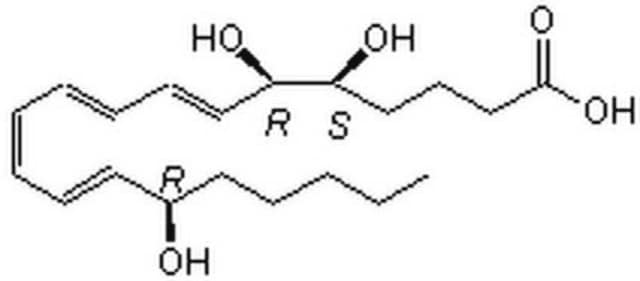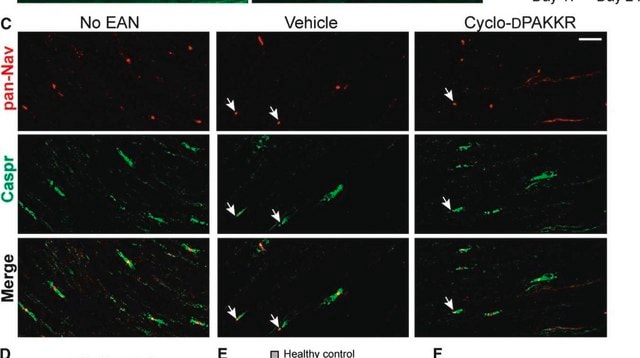SML1919
Nexinhib20
≥98% (HPLC)
Synonym(s):
4,4-Dimethyl-1-(3-nitrophenyl)-2-(1H-1,2,4-triazol-1-yl)-1-penten-3-one, 4,4-Dimethyl-1-(3-nitrophenyl)-2-(1H-1,2,4-triazol-1-yl)pent-1-en-3-one
Sign Into View Organizational & Contract Pricing
All Photos(1)
About This Item
Empirical Formula (Hill Notation):
C15H16N4O3
CAS Number:
Molecular Weight:
300.31
UNSPSC Code:
12352200
NACRES:
NA.77
Recommended Products
Quality Level
assay
≥98% (HPLC)
form
powder
color
white to beige
solubility
DMSO: 20 mg/mL, clear
storage temp.
2-8°C
Biochem/physiol Actions
Nexinhib20 (neutrophil exocytosis inhibitor 20) is a potent inhibitor of the interaction between the small GTPase Rab27a and its effector JFC1 (synaptotagmin-like protein1). Nexinhib20 inhibits exocytosis of azurophilic granules in human neutrophils without affecting other important innate immune responses including phagocytosis and neutrophil extracellular trap production.
Nexinhib20 prevents the expression of cytochrome b558 in the plasma membrane. It modulates vesicular trafficking and neutrophil activities. Nexinhib20 reduces the systemic inflammation, mediated by neutrophils.
Storage Class
11 - Combustible Solids
wgk_germany
WGK 3
flash_point_f
Not applicable
flash_point_c
Not applicable
Certificates of Analysis (COA)
Search for Certificates of Analysis (COA) by entering the products Lot/Batch Number. Lot and Batch Numbers can be found on a product’s label following the words ‘Lot’ or ‘Batch’.
Already Own This Product?
Find documentation for the products that you have recently purchased in the Document Library.
Nesrin Irep et al.
Journal of cellular and molecular medicine, 28(4), e18138-e18138 (2024-02-14)
Exosomes are recognized as important mediators of cell-to-cell communication, facilitating carcinogenesis. Although there have been significant advancements in exosome research in recent decades, no drugs that target the inhibition of sEV secretion have been approved for human use. For this
LncRNA H19-rich extracellular vesicles derived from gastric cancer stem cells facilitate tumorigenicity and metastasis via mediating intratumor communication network.
Zhao, et al.
Journal of Translational Medicine, 21, 238-238 (2023)
Identification of Neutrophil Exocytosis Inhibitors (Nexinhibs), Small Molecule Inhibitors of Neutrophil Exocytosis and Inflammation DRUGGABILITY OF THE SMALL GTPase Rab27a
Johnson J L, et al.
The Journal of Biological Chemistry, 291(50), 25965-25982 (2016)
Tumor-Derived Small Extracellular Vesicles Inhibit the Efficacy of CAR T Cells against Solid Tumors.
Wenqun Zhong et al.
Cancer research, 83(16), 2790-2806 (2023-04-28)
Chimeric antigen receptor (CAR) T-cell therapy has shown remarkable success in the treatment of hematologic malignancies. Unfortunately, it has limited efficacy against solid tumors, even when the targeted antigens are well expressed. A better understanding of the underlying mechanisms of
Carolina F Ruivo et al.
Gut, 71(10), 2043-2068 (2022-01-12)
Intratumor heterogeneity drives cancer progression and therapy resistance. However, it has yet to be determined whether and how subpopulations of cancer cells interact and how this interaction affects the tumour. We have studied the spontaneous flow of extracellular vesicles (EVs)
Our team of scientists has experience in all areas of research including Life Science, Material Science, Chemical Synthesis, Chromatography, Analytical and many others.
Contact Technical Service








